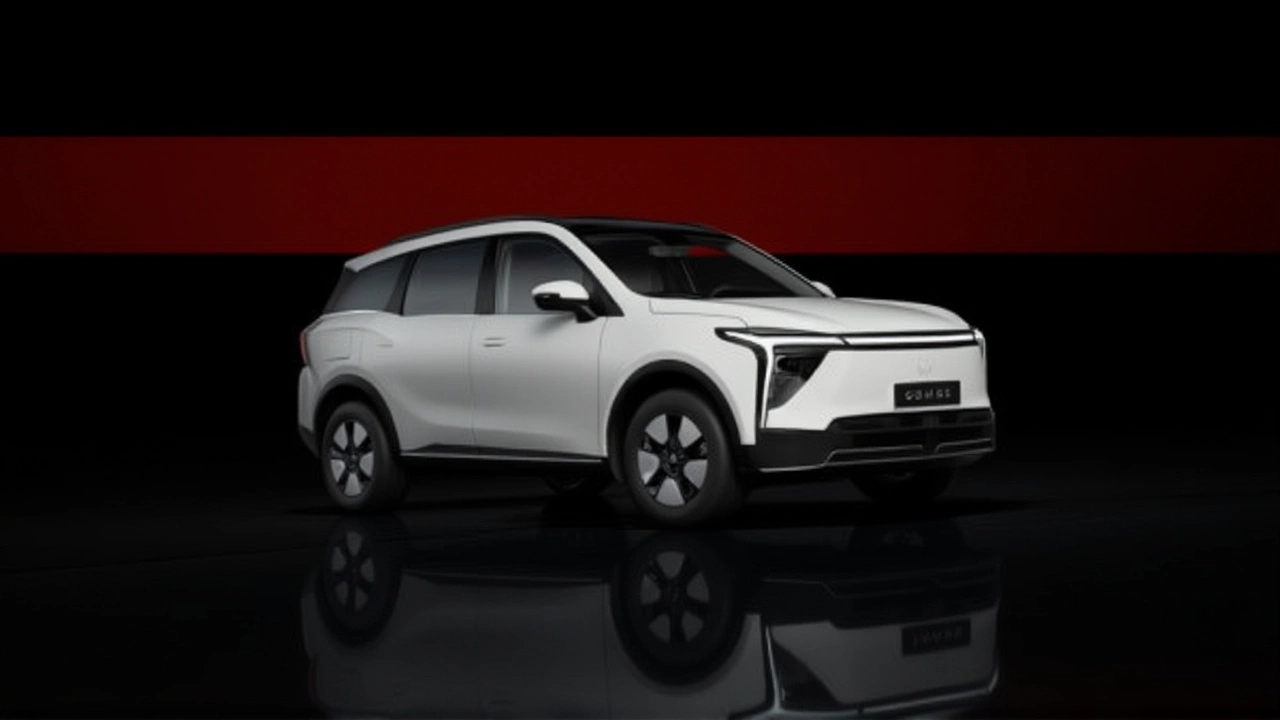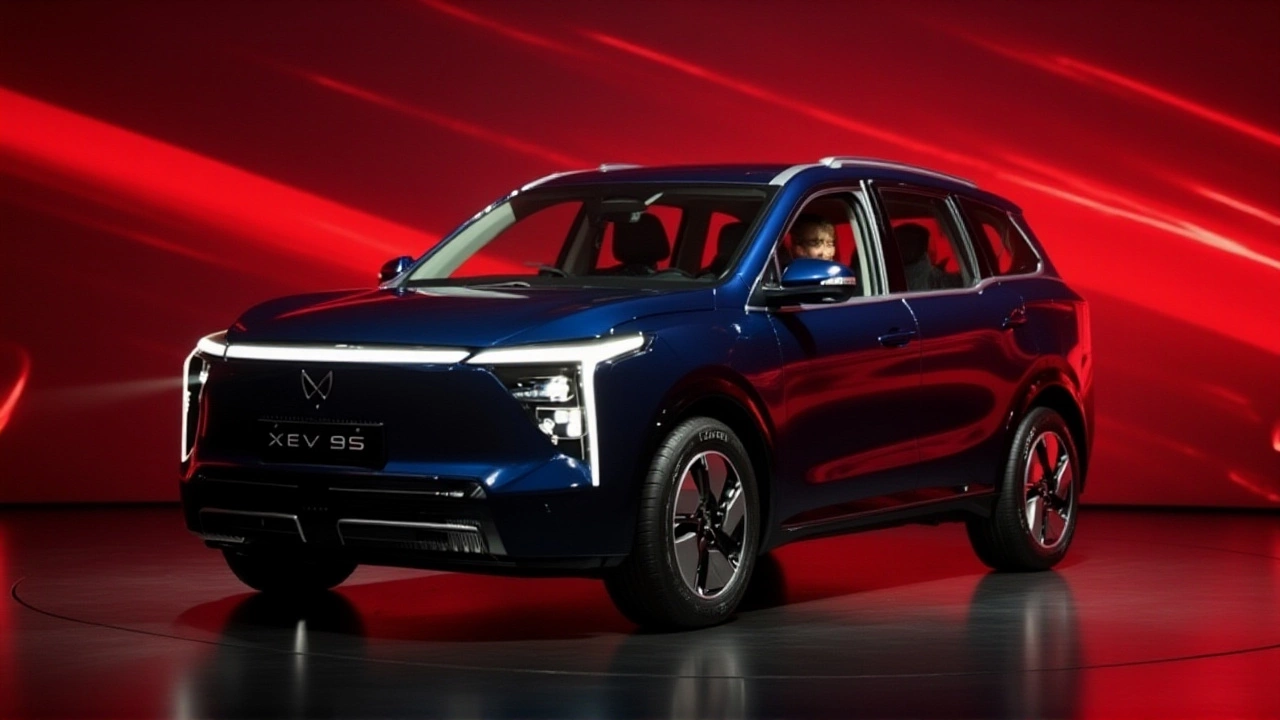On May 27, 2025, Matter, a Ahmedabad-based electric two-wheeler startup, made history by announcing the first-ever lifetime battery warranty in India’s EV sector—for its Matter Aera electric motorcycle. Just weeks later, on July 15, 2025, Tata Motors followed suit, extending lifetime coverage to its Tata Harrier EV, Tata Curvv EV, and Tata Nexon EV (45 kWh variants). The move isn’t just marketing—it’s a seismic shift in consumer confidence. For the first time, Indian buyers aren’t just being sold an electric vehicle. They’re being sold peace of mind.
Why This Matters More Than You Think
For years, range anxiety was the big fear. Now, it’s battery degradation. People worry: "Will my EV’s battery die in five years? Will I need to spend ₹1.5 lakh replacing it?" Matter and Tata are answering that fear with ironclad guarantees. Matter’s CEO, Mohil Lalbhai, put it bluntly: "We want more people to adopt electric, and this is our commitment to making that journey worry-free." And it’s not empty talk. The Matter Aera uses liquid-cooled battery tech, rigorously tested for Indian heat, dust, and monsoons. Its 172-km range and just 25 paise per km charging cost make it a financial no-brainer. But the warranty? That’s the game-changer.
The Tata Play: A Strategic Masterstroke
Tata’s move is more complex—and more calculated. Their lifetime warranty applies only to the first registered owner. Second owners get 8 years or 1.6 lakh km for the Curvv and Nexon EVs. For the Harrier EV? A staggering 10 years or 2 lakh km. That’s longer than most car loans. And here’s the kicker: to keep the warranty valid, owners must follow the scheduled service plan at authorized centers. No aftermarket mods. No physical damage. No tampering. As a June 16, 2025 YouTube analysis by Dr. Gadget warned: "If your battery has a scratch, a dent, or even a tiny touch after 15 years, Tata might deny the claim." It’s not a blank check. It’s a carefully managed promise.
But Tata didn’t stop there. They offered existing Nexon and Curvv EV owners up to ₹50,000 loyalty bonus if they upgrade. Clever. They’re not just selling new cars. They’re turning loyal customers into brand ambassadors. And for those who buy used? Ownership transfer must be formally reported to Tata Passenger Electric Mobility Limited. No loopholes. No surprises.
Behind the Scenes: Vertical Integration and Trust
Matter’s warranty is possible because they control nearly everything. They design their own battery packs. They build their own battery management systems. In-house manufacturing means fewer suppliers, tighter quality control, and lower failure rates. That’s why they can offer lifetime coverage without panic. Tata, meanwhile, leverages its scale. As India’s largest automaker, it can absorb higher warranty costs across millions of vehicles. Its batteries are sourced from trusted partners like LG and CATL, but the warranty terms are standardized across its EV lineup. The result? A unified message: "We’re in this for the long haul."
What This Means for the Market
Before this, the best warranty in India was 8 years for batteries—offered by MG and Hyundai. Now, both Matter and Tata have blown past that. The ripple effect is immediate. Competitors like Ola Electric, Ather, and Mahindra are under pressure to respond. If they don’t, they risk looking like they’re hiding something. Buyers will start asking: "Why should I buy from you if they’ll replace my battery for life?"
And it’s not just about cars and bikes. This sets a precedent for the entire EV ecosystem. Battery leasing? Battery resale? Used EV markets? All of it just got a massive credibility boost. When you know your battery won’t die in 5 years, you’re more likely to buy a used EV. That opens up a whole new market segment.

What’s Next?
Expect more automakers to announce similar policies by Diwali 2025. The government might even push for standardized lifetime warranty rules. Insurance companies are already watching—HDFC ERGO’s July 2025 report noted a potential 12% drop in battery-related claims over the next three years. Meanwhile, Matter plans to expand its warranty to all future models. Tata is rumored to be testing a 12-year warranty on its next-gen EV platform.
How It Works: The Fine Print You Can’t Ignore
Both companies insist the battery must retain at least 80% of its original capacity to qualify for replacement. That’s industry standard—but it’s also where disputes arise. What counts as "normal degradation"? Who decides? Both firms say they’ll use certified diagnostics at authorized centers. But if your battery drops to 78% after 7 years? You might be out of luck. Also, neither warranty covers batteries damaged by accidents, water immersion, or unauthorized modifications. Read the manual. Follow the schedule. Keep your service records.
For Tata, the warranty on other components remains 3 years or 1.25 lakh km—but can be extended to 3 years or 1.6 lakh km with paid service packages. Matter’s warranty covers the entire vehicle, not just the battery, for the first 3 years.
Frequently Asked Questions
Does the lifetime battery warranty apply to used EVs bought from private sellers?
No. Both Matter and Tata limit lifetime battery coverage to the first registered owner. Second owners receive a standard 8-year or 1.6-lakh-km warranty (10 years/2 lakh km for Harrier EV). To qualify, ownership transfer must be formally registered with the manufacturer. This prevents abuse while protecting original buyers.
What happens if my battery degrades below 80% capacity before the warranty period ends?
Both companies will replace or repair the battery at no cost if capacity falls below 80%. Tata uses certified diagnostic tools at authorized centers to measure this. Matter does the same, with real-time battery health tracking via its app. You won’t get a brand-new pack every time—just one restored to at least 80% of original performance.
Are there hidden costs like service fees or diagnostic charges?
No. Battery replacement under warranty is fully covered, including diagnostics, labor, and parts. But you must use authorized service centers. If you go to a third-party garage, the warranty voids immediately. Also, routine maintenance (like tire rotations or brake checks) still requires payment unless covered under separate service packages.
How does this affect the resale value of EVs in India?
Resale value just shot up. Cars with lifetime battery warranties are now premium products. Used Matter Aera and Tata EVs with original warranty documentation are already selling for 15–20% more than comparable models without such coverage. Buyers are willing to pay extra for guaranteed battery life—especially in cities with extreme heat.
Can I transfer the lifetime warranty if I move abroad?
No. The lifetime warranty is valid only within India. International service infrastructure doesn’t exist yet. If you export your vehicle, the warranty terminates upon registration in another country. This is standard across global EV makers, including Tesla and Rivian.
Is this warranty really "lifetime," or is it just marketing?
It’s legally binding—but "lifetime" means the vehicle’s legal registration lifespan under Indian Motor Vehicles Act, which is 15 years for private vehicles. After that, registration renewal is optional. So technically, it’s 15 years for first owners. But for most buyers, that’s longer than they’ll own the car. And if the company still exists in 2040? They’re contractually obligated to honor it.



